Whispers in the Dark – Part Three
We do not understand.
﷽
Author’s Note & Trigger Warning
Dear reader,
Before you begin, I want to offer a gentle trigger warning. This part of my story contains references to medical trauma and sexual assault. Please read only when you feel emotionally ready, and pause whenever you need to. If it feels heavy, step away. Take a breath. Remember: Allah is Al-Latif — the Most Gentle —and He never burdens a soul beyond what it can bear.
When I first began writing Whispers in the Dark, I thought I could contain it in three parts.
But once I completed this section, I realized that compressing the story would not do it justice —
the final arc needed space to breathe, to close with the tenderness it deserves.
So, I’ve split Part 3 into two parts, and the fourth and final chapter will, inshaAllah, be published next week.
For those who read last week’s newsletter by email, please note that the email version contained several typos and formatting mistakes. If you’d like to read the correct, complete version,
you can find it here — as it was meant to be read.
Though written in a storytelling style, this is not fiction. Every word is drawn from real events, a real illness, and a very real battle for my soul. I chose to frame it in narrative form so you could step into the experience — the darkness, the whispers, and the mercy that carried me through.
End of Week 1
Only Allah knows the future. It is part of the unseen. And little did I know what would unfold. I found myself back in the same ward I had left only a day and a half before. I was once again, at the mercy of the nursing staff. Some were indeed merciful — and those are the ones I choose to remember.
Like the Dutch nurse whose name I forgot, who moved through the halls like she wanted to fade away.
One morning, as she showered me, she asked softly,
“Why does your hair look that way?”
Over the years, I’d learned not to take offense.
“It’s because Allah made me this way,” I told her, smiling faintly.
“I’m black, though I look white. My hair is part kinky and part straight.”
She nodded, curiosity softening her face.
Over the next two weeks, her questions deepened — about Islam, about my strength, about what gave me the courage to speak so freely.
“Is it your faith?” she asked one evening. “Or is it because you’re a black woman?”
She told me she’d often watched black women walk through the world with a certain unspoken courage —a strength she admired but couldn’t yet name.
“You’re really brave,” she continued.
“The way you stood up to those doctors…” Her voice cracked.
I smiled with a certain kind of sadness lodged in my eyes. “We black and brown women have to be courageous,” I said. “Or the world will trample us.”
“My grandmother was a strong black woman — and my mother — proud, brown, and tender. I watched them stand up to a world ready to devour them! But instead they devoured the world. Yet I saw them lose a sacred part of themselves,” choking on tears I struggled to continue, “Their femininity. It was my father who shaped the warrior in me. He used to call me his warrior princess.”
“Are they in America?”
“No,” I said softly. “They returned to Allah.”
Silence filled the space between us.
Then I told her what my father had taught me — that the essence of true power for a woman lies in her femininity, and that strength and softness are not enemies but sisters.
“It’s ironic,” I said with a faint laugh, “that I learned that from a man.”
She smiled. “Is that why you were able to stand up to the doctors?”
“I’m not afraid of people anymore,” I said.
And I meant it.
The Three Female Doctors
She was referring to the three female doctors who became my attendings after my second admission.
The previous day, I had asked them why the doctors from my first stay hadn’t listened to me.
“Ms. Cauveren,” one said, “we weren’t there, so we don’t know.”
I turned to the Portuguese doctor who had been my attending previously — and said gently,
“She was there! I’m not angry. I just want to understand why I wasn’t heard.”
The Portuguese doctor eyes softened. “I’m sorry, Ms. Cauveren,” she said.
“We should have listened. But your symptoms were atypical. We thought you were okay.”
“Thank you,” I said. “I appreciate that.”
From then on, I was kind to her — not out of convenience, but out of gratitude. Apology is an act of courage too.
The Dutch nurse I had grown close to began to care for me like family. I taught her how to stand tall, even when she felt invisible.
“Command a room,” I told her, “take up your space and don’t let others put you down. You’re lovely!”
Sometimes, that’s all people need — to be seen. To know they matter.
A Medical Mystery
“We don’t understand where the liters of bile are coming from,” the doctors said. “We don’t understand where it’s being produced.”
Those words — we don’t understand — became part of the daily soundtrack of my life.
My first full night in the hospital, I was told I had to be intubated. “If we don’t,” said a brunette Greek nurse, “you might choke in your sleep.”
I refused.
Hours later, I woke choking in a cold sweat. It was 2 a.m.
“Okay,” I whispered hoarsely. “Let’s do it.”
Her eyes brightened with nervous excitement — I would later learn it was only her third intubation.
As they began, the world narrowed. The sharp scent of antiseptic filled my nose.
It felt like drowning — like trying to swallow air that refused to be swallowed. The tube was inserted via my right nostril into my trachea. Every instinct screamed pull it out, but I couldn’t. I couldn’t breathe, and yet I had to trust. So I surrendered.
Ya Allah, I prayed, help me through this.
The tube settled deep. Like a snake coiled inside my windpipe. Each breath heavy and mechanical, unnatural — a reminder that I was no longer breathing by will but by mercy. I could no longer speak without extreme pain. The heaviness of the plastic tube pressing against my windpipe 24/7 delivering a low, constant and intense pain.
When it was done, I waited until I could gather myself enough to ask,
“Can you explain the procedure again — and the care protocol?”
Knowledge, I had learned, was power. And vigilance, even in weakness, was worship.
The PICC Line
Two days into my second hospital stay, I was wheeled to radiology. A man with kind eyes looked at me over his glasses.
“Ms. Cauveren,” he said, “you’re going to have a PICC line inserted — that’s a peripherally inserted central catheter.”
He paused.
“I’ve been told you’ve been informed what that is.”
“By whom?” I asked. “No one told me anything.”
He flushed, embarrassed, and began to explain.
As he spoke, I saw my own heart beating on the monitor. For the first time, I saw the organ that had carried me through every storm. It looked fragile, yet I realized —I was still alive. Two hours later, nutrients began to drip into my body. Warmth returned to my limbs.Strength crept back like dawn breaking after a long night.
I hadn’t been eating — not enough to sustain life.
And it hit me, I’d been starving. Right here under the care of medical staff, I’d slowly been starving That’s why I became weaker and not stronger as the days progressed.
Week 2 - Hospital East
A few nights after being readmitted , in the semi-darkness of my room, the sound of beeping from distant machines echoed in my mind —a sound that still awakens my anxiety whenever I recall it. I closed my eyes and went inward. There, in the quiet, I searched for my heart — and I didn’t like what I found.
Anger. Old, buried anger. Anger that stretched back to childhood —to the little girl lost in a sea of a rioting crowd on a day that carved itself into memory. To the day I learned my father had been murdered. To the day I watched my mother’s coffin vanish into the earth.
It took a surgeon’s scalpel to bring that buried rage to the surface. It took pain so deep that I could no longer hide from myself.
I was angry at the world, but mostly, I was angry at me —for letting other people’s opinions shape my life.
I kept myself small when Allah had given me talents — and nur, light. I dimmed that light whenever dream-snatchers told me it shone too bright. I didn’t want to stand out.
In a world obsessed with being extraordinary, I just wanted to be ordinary. So I cringed whenever someone said, “You inspire me.” Their praise made me shrink instead of rise. But Allah has ways of confronting what we try to bury. Sometimes, He uses a surgeon’s knife to carve open the heart — to let out what festers in its dark corners. And through pain, I learned what my mother once tried to teach me.
I remember a warm day in Amsterdam, long ago. We were walking together past the building I now call home. “I want to live there one day,” I had said, half-dreaming, half-doubting. She turned to me, her expression firm yet loving.
“You can do it,” she said.
I must have hesitated, because she stopped, placed her hands on my shoulders, and looked straight into my soul.
“Dee,” she said — her nickname for me —
“I need you to see what everyone else sees.
You are destined for greatness.”
I laughed nervously. “Okay, sure, Mama.” But she didn’t laugh.
“Now you listen to me,” she said, her grip tightening just slightly.
“You are extraordinary. And I need you to believe it.”
That look — fierce, protective, unyielding — stayed with me until this day.
It took a surgeon’s scalpel, slicing many centimeters across my abdomen, to make me finally understand she was right. I realized it not with arrogance, but with humility and gratitude. Because even that awakening — like all awakenings — came from Allah.
And Islam, in its beauty, even offers protection for the heart when you’re praised.
Abu Bakr would make after being praised (some narrations state that it was a duaa of Ali .
It is reported that he would say,
اللهمَ اجْعَلْنِى خَيْرًا مِمَّا يَظُنُّونَ وَاغْفِرْ لِى مَا لَا يَعْلَمُونَ وَلَا تُؤَاخِذْنِى بِمَا يَقُولُون
O Allah, make me better than what they think of me, and forgive me for what they do not know about me, and do not take me to account for what they say about me.
How could I be grateful to Allah if I denied the gifts He had entrusted me with?
“Ya Allah”, I whispered.
“You have given me talents, character, courage —all from Your mercy.
Let me use them for You, not for me. It was then I surrendered — truly surrendered.”
Surrender
Yes, I’d have to keep my hijab on twenty-four hours a day. Yes, my salah would be interrupted by nurses and machines. And yes, I would have to navigate trauma, again and again. But something shifted the moment I said “Alhamdulillah” with full acceptance. I began to feel my heart again. The pain didn’t vanish, but it softened. It became a teacher, not an enemy. And those wounds that later would become deep scars across my abdomen —five in total —I grew to love them. They were not marks of suffering. They were signs of Allah’s love, protection, and mercy.
Week 2.5 – Hospital East
I was intubated again — before the end of my hospital stay I would be intubated a total of five times. Once, a nurse accidentally cut the intubation tube and gasped,
“Ya Allah, so sorry! Forgive me!”
“It’s okay, ukhti,” I said weakly.
“Alhamdulillah for everything.”
But writing about it even now makes my throat tighten. Each intubation felt like being pulled between two worlds — one where I breathed through will, and one through surrender.
It was after the second time needing to be intubated in one week one of my doctors told me about a procedure they wanted the next day, to expand a narrowing in my organ, which was causing complications. It would be under local anesthesia.
I prayed istikhara. Moments after the prayer, my IV pump began to beep. It wouldn’t stop —a constant, sharp reminder that perhaps this procedure was not written for me.
The nurses recalibrated it over and over through the night, but the alarm persisted.
In the morning I was wheeled down the long hallway, past windows that framed the city like a painting. I had forgotten what sunlight looked like through glass. Forgotten the sound of cars, the rhythm of life beyond white walls.
The procedure room was bright — sterile and humming with anticipation.An observation platform hung above like a silent witness. The doctor stood there, watching from behind the glass. Something in my chest stirred uneasily. I didn’t like the look of him. He made me deeply uncomfortable.
Two nurses and an anaesthesiologist — all Dutch, all older —explained the process.
I nodded.
“Okay, Ms. Cauveren,” said one nurse. “We’re ready.”
“Wait,” I said suddenly.
“I need to pray.”And right there, I recited the dua of istikhara once more —asking Allah for clarity, for protection, for His will. When I looked up, I caught the doctor’s eyes.
“I’m ready,” I said.
They double-checked the line. The first nurse pushed the syringe. It wouldn’t move.
Her hands trembled as she pressed down harder — nothing. Another nurse tried.
Then the anaesthesiologist. All three syringes failed, each one locking as though an invisible hand held them still.
“The line must be blocked,” one said nervously.
“Let’s insert a new IV.”
But when they tried to pierce my skin, the needle refused to enter. They tried again. And again. Each time, the same —as though my body itself was saying no. Frustration rippled through the room.The doctor, watching from above,spoke through the intercom.
“Find the best nurse at IV insertion.”
A confident woman in her forties strode in, eyes sharp, steps sure. She tested the syringe — it worked perfectly —until it touched my vein. Then it froze.
“Get Samina,” the anesthesiologist said.
Samina entered —a short Moroccan nurse with kind eyes and the calm of one who knows her Rabb.
“Bismillah,” she said.
She tried the PICC line. No movement. She tried my right arm. The needle slid in easily — but the syringe again refused to move.
The room fell silent. All I could hear was the hum of the machines and the sound of my own heartbeat.
I motioned for her to come closer.
“Istikhara,” I whispered.
Her eyes widened.
“SubhanAllah wa bihamdihi,” she breathed.
“What do you want to do?” she whispered.
“It’s clear Allah won’t permit this,” I said. “Not today.”
She nodded, tears gathering in her eyes.
“The patient has decided to not continue with the procedure,” Samina said loudly.
Samina stayed beside me as I was wheeled back to recovery.
“What’s your name?” she asked softly.
“Nour.”
“SubhanAllah,” she smiled.
“You have nur glowing from you.
Ya Shafi, grant Nour shifa. Protect her.”
She made dua over me until the attendants came to return me to my ward. She was reluctant to leave me. We both felt the power of what had just transpired.
The next day, I was sent to radiology to “unblock” the PICC line.
It took less than two minutes.
“There’s absolutely nothing wrong with your line,” the radiologist said, frowning.
Of course not, I thought.
It wasn’t blocked by medicine — it was blocked by divine decree.
Back in my room, the kind Dutch nurse, whose name I have forgotten, came to me, beaming.
“The procedure has been canceled,” she said.
“Dr. da Castro heard about it. He was furious. No more procedures without his approval.”
She squeezed my hand. I smiled through tears.
Even now, it makes me cry.
Alhamdulillah.
Week 2.5 – The Transfer to Hospital West
Time became blurred — stitched together by pain and prayer. Days folded into nights, and I lost count of how long I’d been there. A new patient arrived — an older Dutch man, Mr. van de Laar —placed in the bed nearest the door. I had to pass him each time I went to the toilet or shower. His eyes followed me — heavy, invasive, his lips curling, wet, as he muttered under his breath. I turned away, too tired to confront, too exhausted to feel anger. I whispered hasbunallahu wa ni‘ma l-wakeel —Allah is sufficient for me, and He is the best Disposer of affairs.
I was told I would be transferred soon, to another hospital across town — Dr. da Castro’s home hospital —where the staff were more specialized. I looked forward to it, sensing perhaps a new chapter.
The night before my transfer, however, the two other women in the room were moved. By sunset, I was alone —alone with the man whose eyes had been knives.
Fifteen minutes after the last patient had been transferred to another room, the curtain surrounding my bed rustled. The air shifted. Then the assault came — sudden, vile, animal.
I screamed. The night nurse took too long. The call button flashed red against my trembling hand. Another patient from a nearby room, shouted for help.
Pain burned through every stitch of my incision as I tried to push him away.
He was stronger. I used what power I had left — my voice. A male nurse rushed in, sedated him, and assured me, “He’s harmless.”
He’s harmless.
The words pierced deeper than the man’s touch.
That phrase — the story of my life. Being told by others what my pain should mean. But I knew. He wasn’t harmless. And before dawn, I learned just how right I was.
As I drifted toward sleep after fajr salah, I felt it again — his hands, his breath, his violation. My body was too weak to fight, but my voice rose from somewhere ancient inside me.
I screamed. It was the kind of scream that would make your blood crawl. The corridor erupted. Nurses and doctors ran in. They pulled the old man off of me and escorted him out of the room screaming obscenities.
An elderly nurse entered my curtained corner. “You don’t feel safe,” she said softly, her voice trembling like an old mother’s.
I broke. Tears fell from a place deeper than the wound on my abdomen.
Soon after, a young Surinamese nurse burst in. “You must move now,” she said, urgency quivering in her tone. “No time to pack. You have to walk.”
Every step felt like my body was tearing open again, but I walked — guarded by three male nurses standing between me and Mr. van de Laar as he hurled insults in my direction. I took one final look back into the room to see them restrain him to the bed. Like the animal he is.
“Good,” I whispered when I saw them tighten the straps.
By morning, I was sitting alone in a chair near reception, homeless in the hospital, waiting for the ambulance. Then I heard a familiar voice.
“There you are.” It was the kind Dutch nurse — the one who used to fade away.
She rushed toward me and hugged me tight. “I called the ambulance early,” she said.
“I wanted to make sure you’d be safe.” Her eyes glistened.
Mine did too.
When the paramedics arrived — tall, broad, gentle — she commanded the room, instructing them about my PICC line care, making sure they repeated it back to her word for word.
I reached from the stretcher and hugged her again. “Remember,” I said, “be strong in your own soft way.”
“You’re the best,” she whispered, crying now.
That was the last time I saw her. I did never remember her name, but I love her for the sake of Allah.
Much love,
Nour Cauveren, a little shaken but here Alhamdulillah.
P.S. For this week’s journal prompt I’d like you to revisit the gratitude hack I shared when I was one week post op and unable to type. You can find it by clicking here.



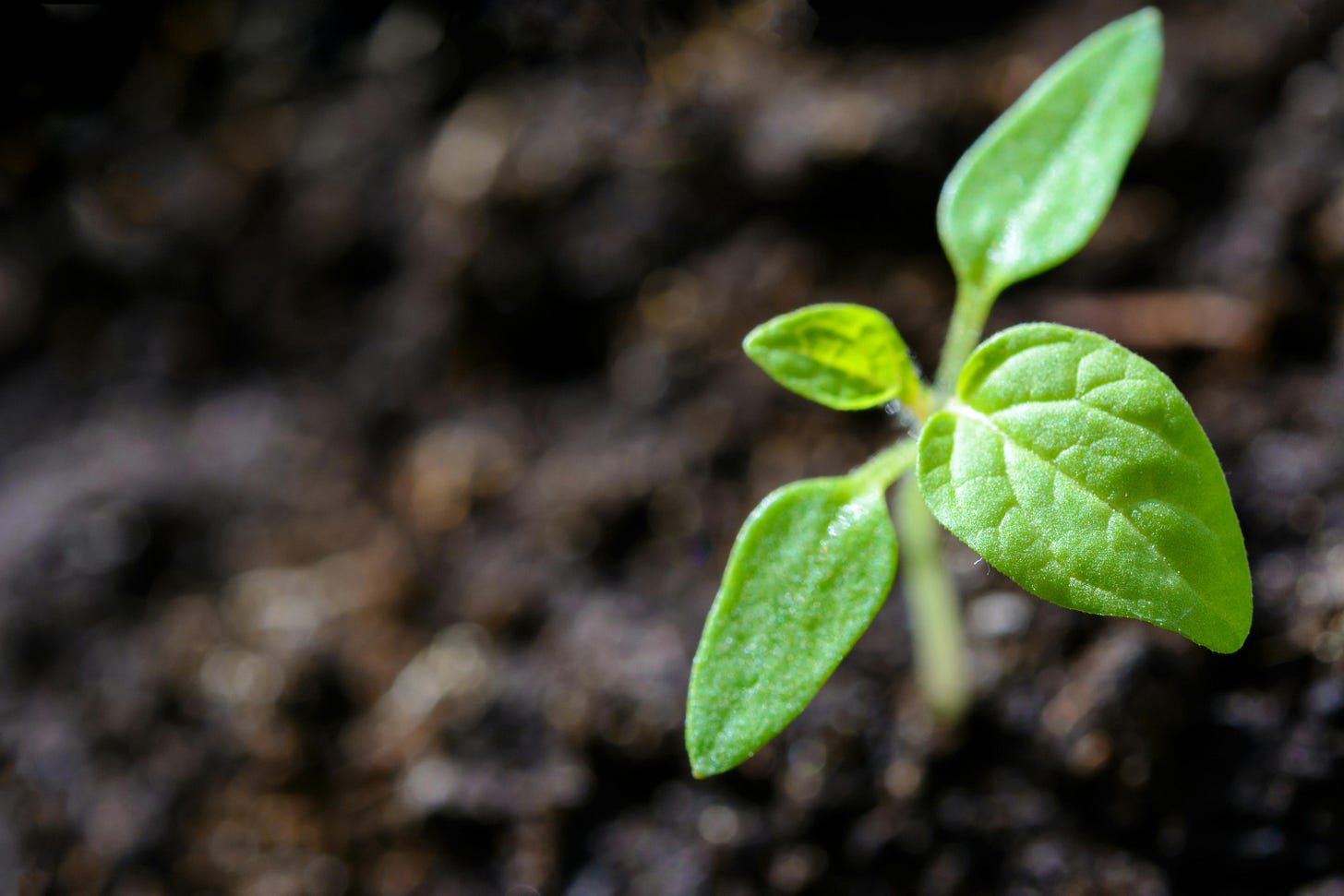
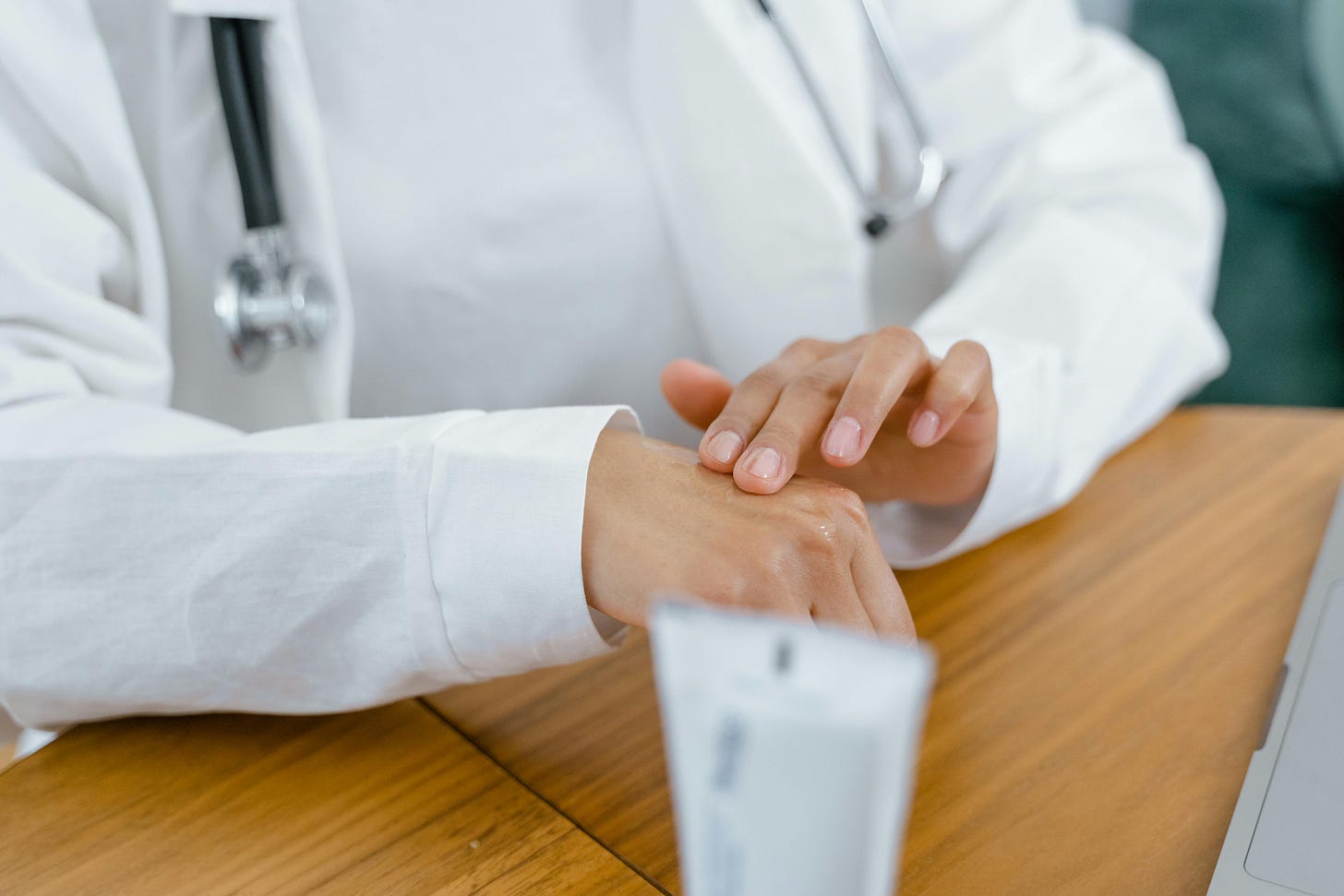
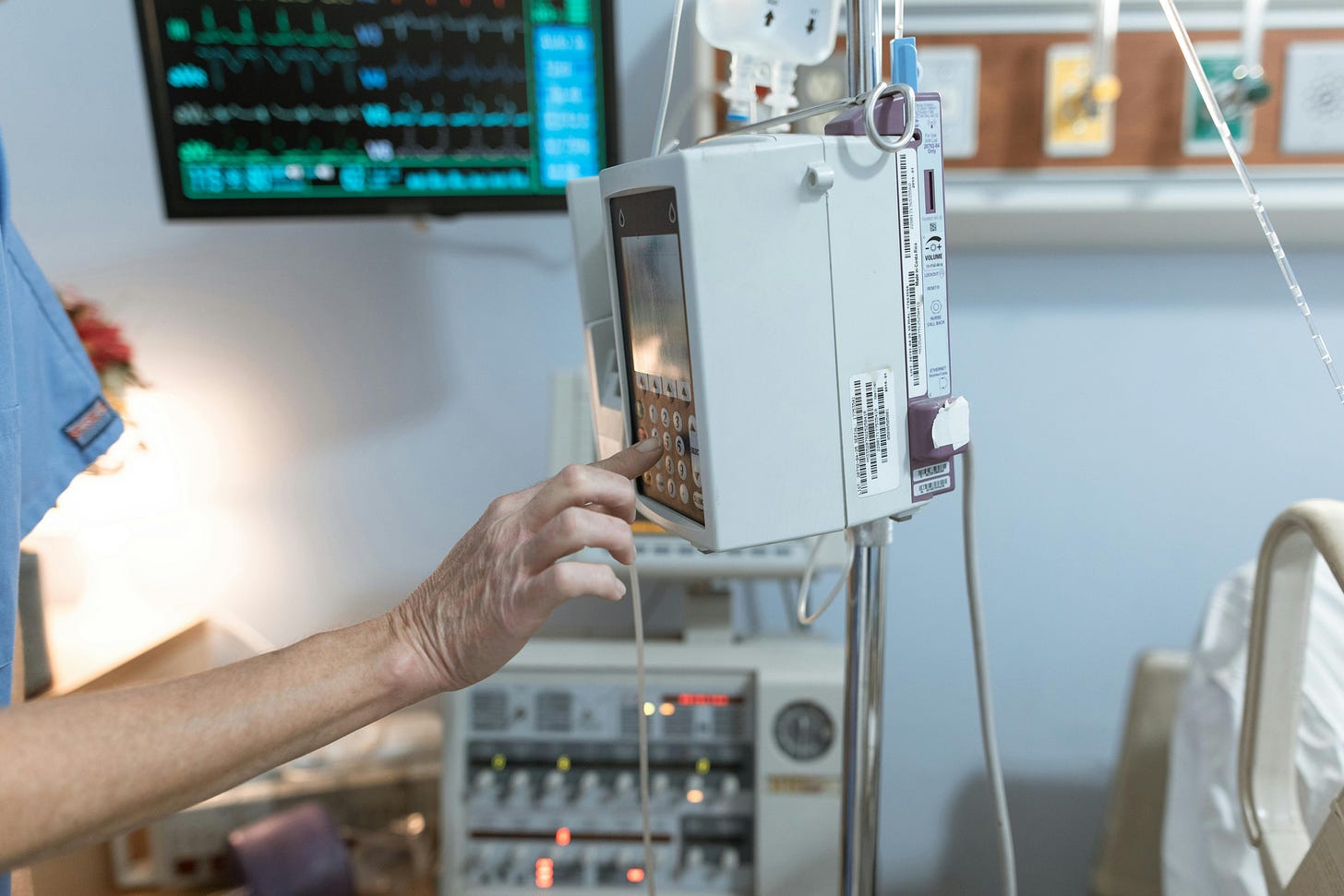
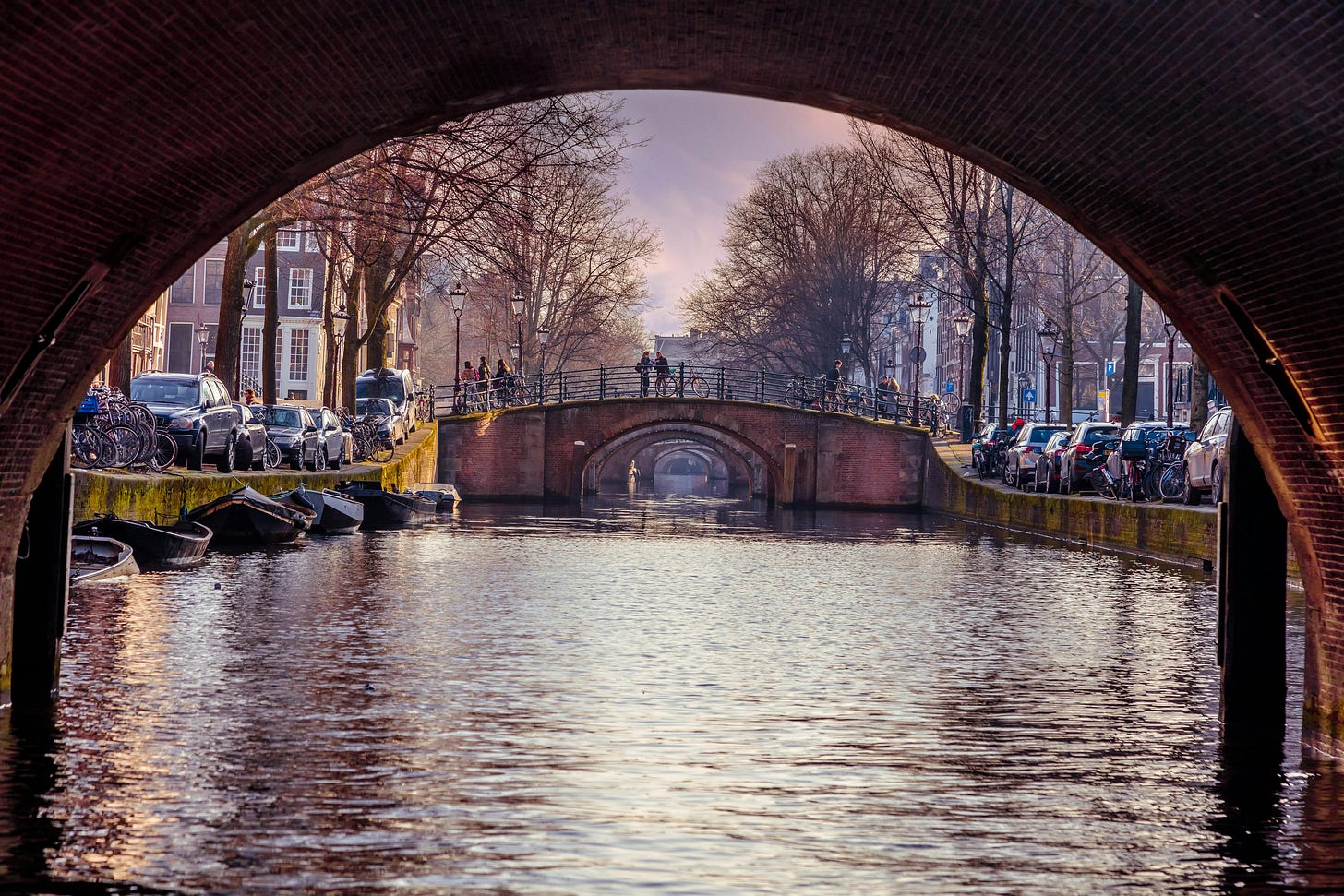
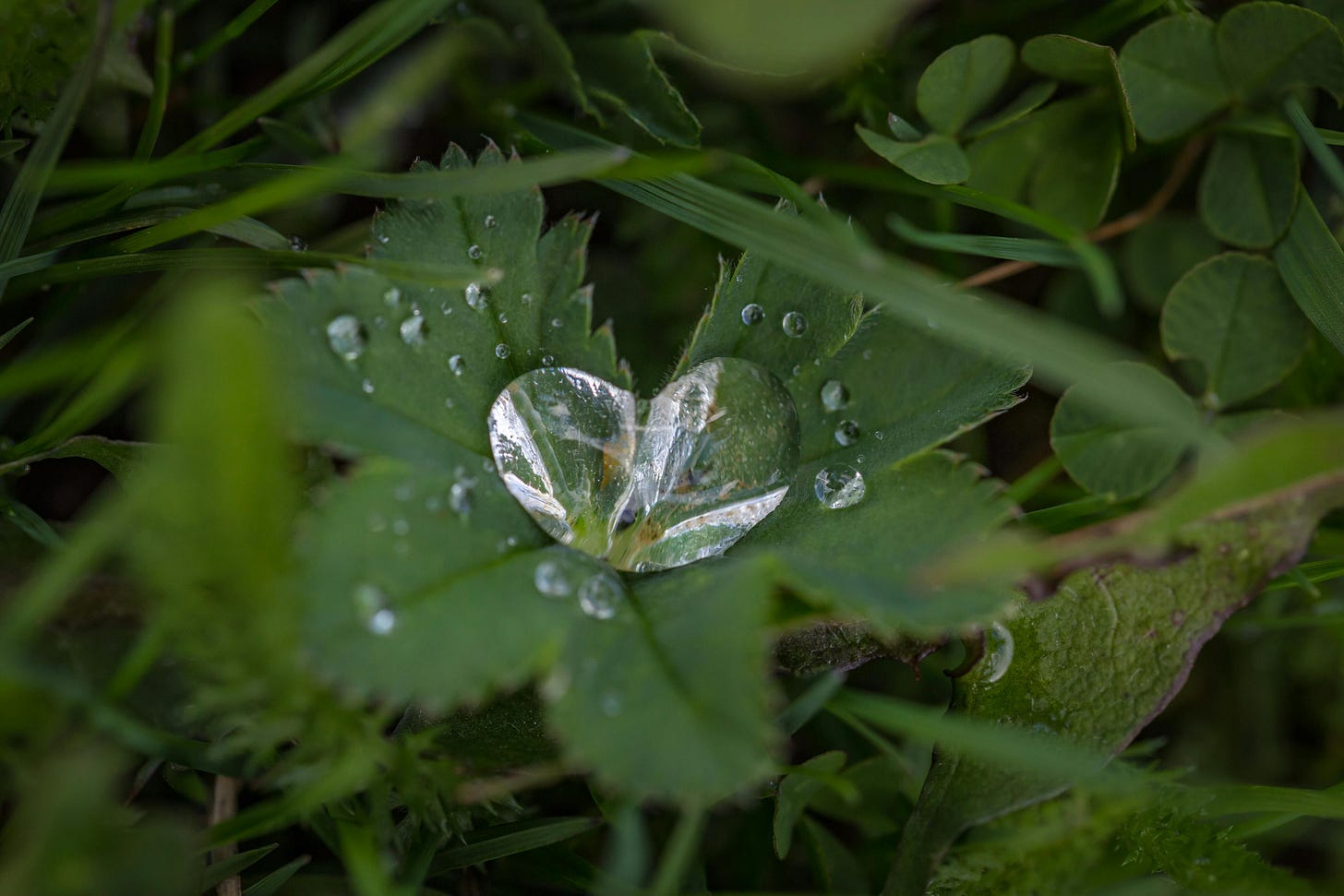
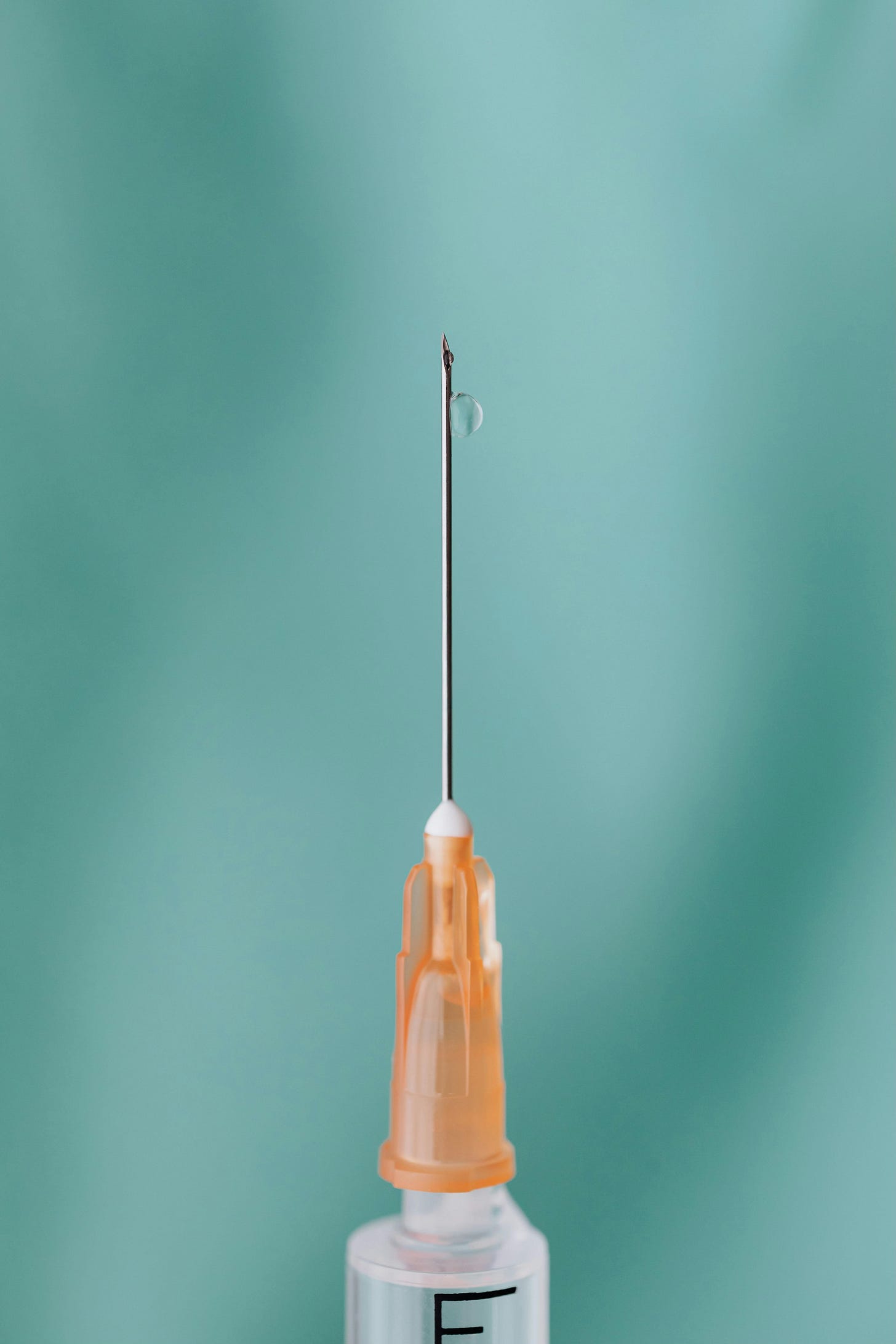
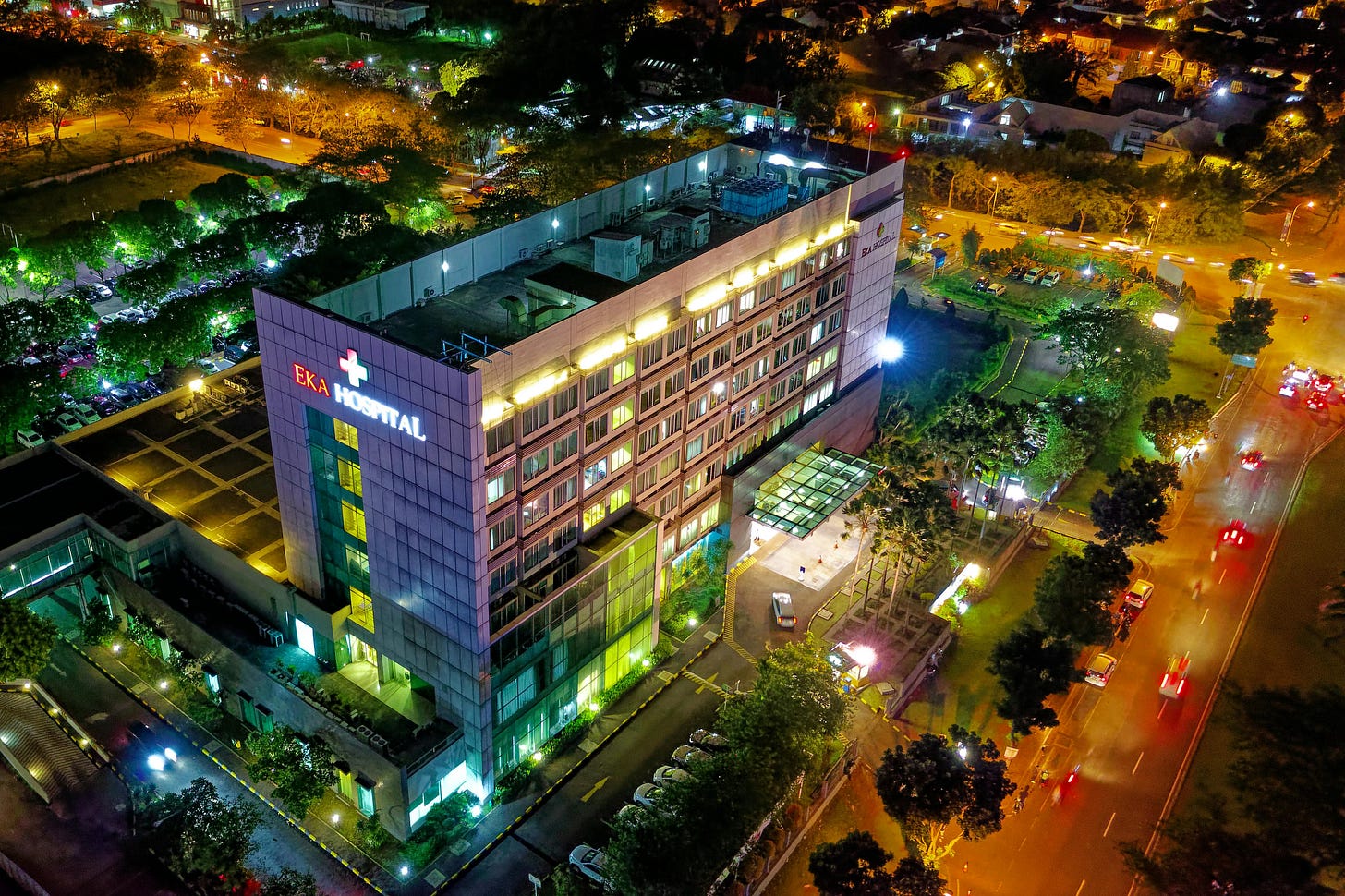
Wow, Nour. So much to say after reading this... Thank you for sharing. I'm going right to read part 4 before I share more.